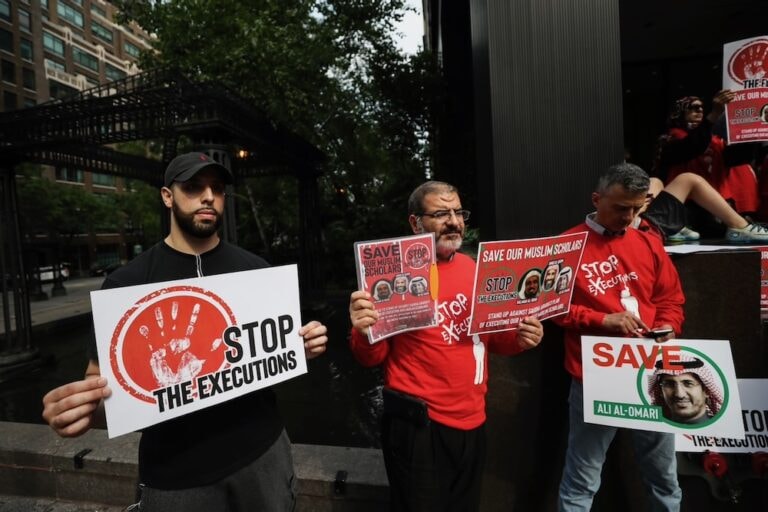Hamza Kashgari posted several tweets about the birth of prophet Mohamed, and was surprised to find severe attacks on him by clergymen and some Saudi citizens who were angered by what he had written.
(ANHRI/IFEX) – Cairo, 8 February 2012 – ANHRI condemns the severe attack on Hamza Kashgari, a poet and journalist with “al-Bilad” newspaper. Prevented from writing, Kashgari fled the country after an official order had been issued to detain him due to tweets he posted on Twitter. The Saudi authorities and religious scholars deemed his tweets as detrimental to Islam.
Kashgari, 23, posted several tweets about the birth of prophet Mohamed, and was surprised to find severe attacks on him by clergymen and some Saudi citizens who were angered by what he had written. The attacks amounted to judging him as an unbeliever and called for him to be killed. The authorities issued recommendations preventing him from writing and taking legal action against him. In a statement, Kashgari apologized for his tweets and for hurting the feelings of anyone. However, an order was issued to detain him and this prompted him to flee the country.
In a separate case, the Committee for the Promotion of Virtue and the Prevention of Vice arrested an expatriate for celebrating New Year’s Day by holding balloons that read “happy new year 2012″. Moreover, the authorities severely restrict the right of Shiite citizens to perform their religious rituals.
The Saudi authorities have addressed the peaceful demonstrations of the mainly Shiite Eastern region with excessive force, resulting in numerous injuries, deaths, and extra-judicial detentions amid shameful silence of the Arab and international community.
“The Saudi authorities continue to severely restrict public freedoms, especially freedom of expression, placing them at the forefront of countries hostile to Internet freedom. There is a long list of websites that have been blocked and censored within the kingdom of Saudi Arabia,” said ANHRI.
“The fleeing of Kashgari shows how the Saudi citizen does not feel safe and does not trust justice in his own country, due to arbitrary extra-judicial detentions and unfair trials. The situation requires timely action by the Arab and international communities to expose these practices and not to leave the activists as easy targets in the hands of the authorities led by clergy and security men; authorities without the slightest respect for international legitimacy and basic human rights,” added ANHRI.


